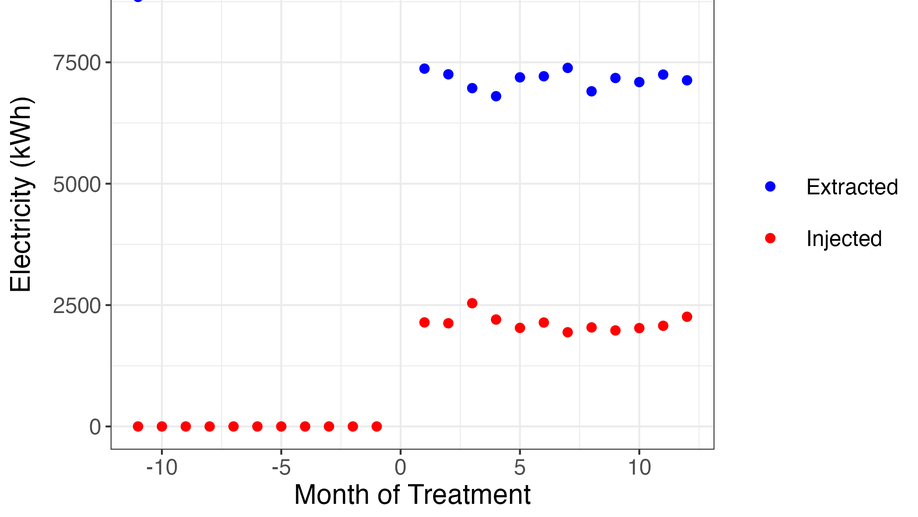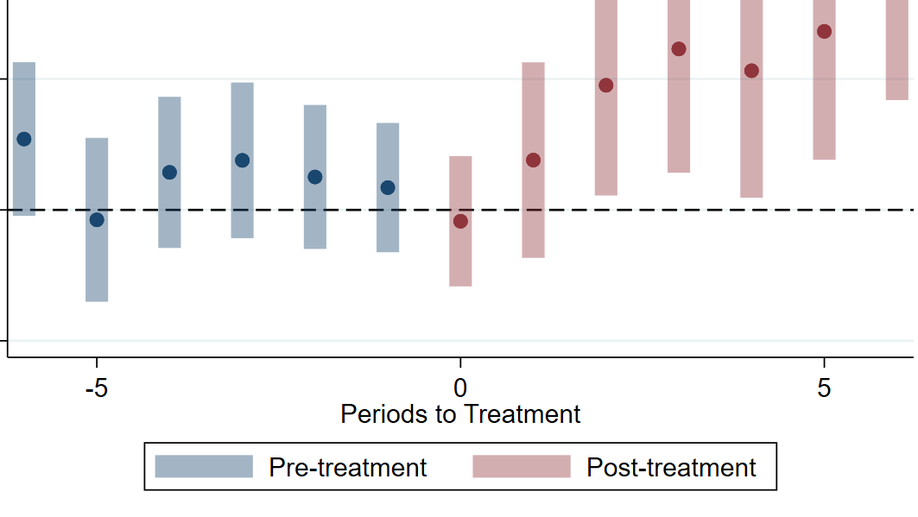The benefits of expanding wind and solar electricity generation depend on their effect on the electricity production mix. Using hourly production data, I study the electricity transition to renewables in Uruguay, a country that currently has 94% of its grid green. First, I quantify how an increase in wind and solar production substitutes hydro, biomass, and fossil fuel electricity production. Second, I analyze how this transition reduces CO2 emissions in the context of large hydropower production. Third, I analyze how this affects spot prices. I find that the increase in wind and solar production has the following effects, (i) a displacement of hydro and fossil fuel production, especially in winter, with no effect on biomass; (ii) a reduction in CO2 emissions; (iii) a decrease in spot prices caused by the shutting off of the most (marginally) costly plants; and (iv) a spillover effect to the region due to an increase in exports to Argentina and Brazil. I find, however, that the increase in wind and solar production is insufficient to eradicate fossil fuels. These results show the effect of increasing renewables, how they interact with each other - particularly in hydro-dependent countries -, and their effect on emissions and spot prices..

